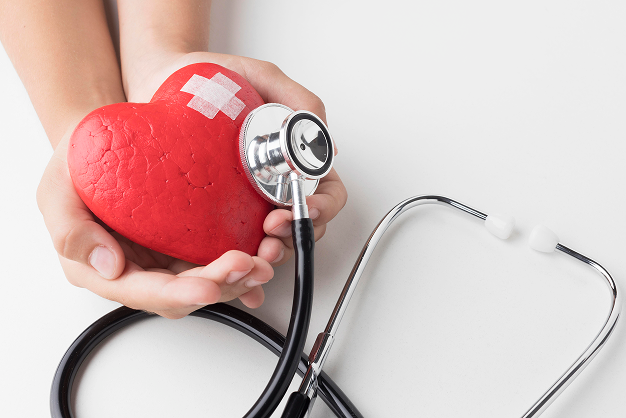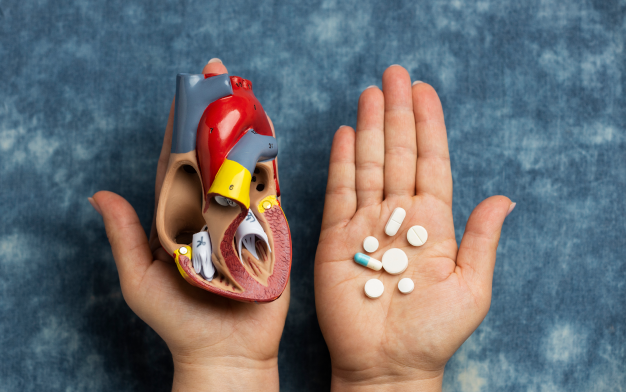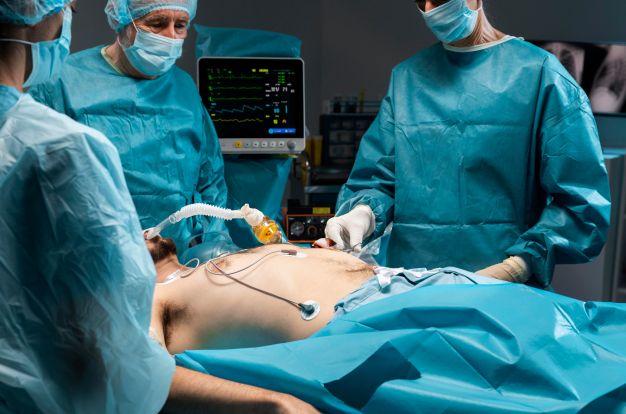Author: Dr. Joby K. Thomas, Senior Consultant & Interventional Cardiologist
A heart attack happens when blood flow to the heart is blocked, leading to damage of the heart muscle. This usually occurs due to blockages in the coronary arteries from blood clots or fatty deposits. If not treated in time, it can become life-threatening. With the right awareness and timely medical care, heart attacks can often be prevented or treated effectively.
Common Causes of Heart Attack
Several risk factors increase the chances of a heart attack:
- High blood pressure (Hypertension)
- Diabetes – damages blood vessels and raises risk
- Smoking
- Sedentary lifestyle (lack of exercise)
- High cholesterol
- Obesity or excess body weight
- Stress
- Family history – higher risk if close relatives had heart disease
Symptoms to Watch Out For
The most common symptom is chest pain or discomfort, which may spread to the arms, neck, jaw, back, or stomach. Other signs include shortness of breath, sweating, nausea, and dizziness. If you notice these symptoms, seek medical help immediately – timely care can save lives.
Diagnosis
Doctors use several tests to confirm a heart attack:
- ECG (Electrocardiogram) – checks heart’s electrical activity
- Troponin blood test – detects heart muscle damage
- Echocardiogram – ultrasound to assess heart function
- Coronary Angiogram – identifies artery blockages
- CT Coronary Calcium Scoring – measures calcium deposits to assess risk
Treatment Options
A heart attack is a medical emergency. Quick treatment increases survival chances. Common treatments include:
- Medications such as Aspirin, Clopidogrel, Nitroglycerin, and Beta-blockers
- PCI (Angioplasty & Stenting): A catheter with a balloon opens blocked arteries, often followed by stent placement
- Coronary Bypass Surgery: In severe cases, surgeons use healthy blood vessels from other parts of the body to bypass blocked arteries
Prevention – Protecting Your Heart
The good news is that many heart attacks are preventable. Simple lifestyle changes can go a long way:
- Eat a heart-healthy diet:
- Choose whole grains, vegetables, fruits, nuts, and lean proteins.
- Avoid processed foods, excess sugar, and red meat.
- Quit smoking.
- Exercise daily: At least 30 minutes of walking, cycling, or yoga.
- Control diabetes, blood pressure, and cholesterol with proper treatment.
- Maintain healthy body weight.
- Manage stress through yoga, meditation, or relaxation techniques.
- Get regular health checkups to monitor heart health.
Heart Care at Caritas Hospital
At Caritas Hospital, one of the Best Cardiology Hospitals in Kottayam, we provide advanced heart care with a dedicated team of experts. Recognized as a leading Critical Care Hospital in Kottayam, our specialists offer world-class treatment and preventive care. With the guidance of the Best Cardiologists in Kottayam, we ensure timely diagnosis, effective treatment, and personalized care for every patient.
Your heart health is in your hands. By adopting a healthy lifestyle, staying alert to symptoms, and seeking timely medical help, you can reduce the risk of heart attack and live a healthier life.
.pdf%20300X60%20PX-02-02.svg)



